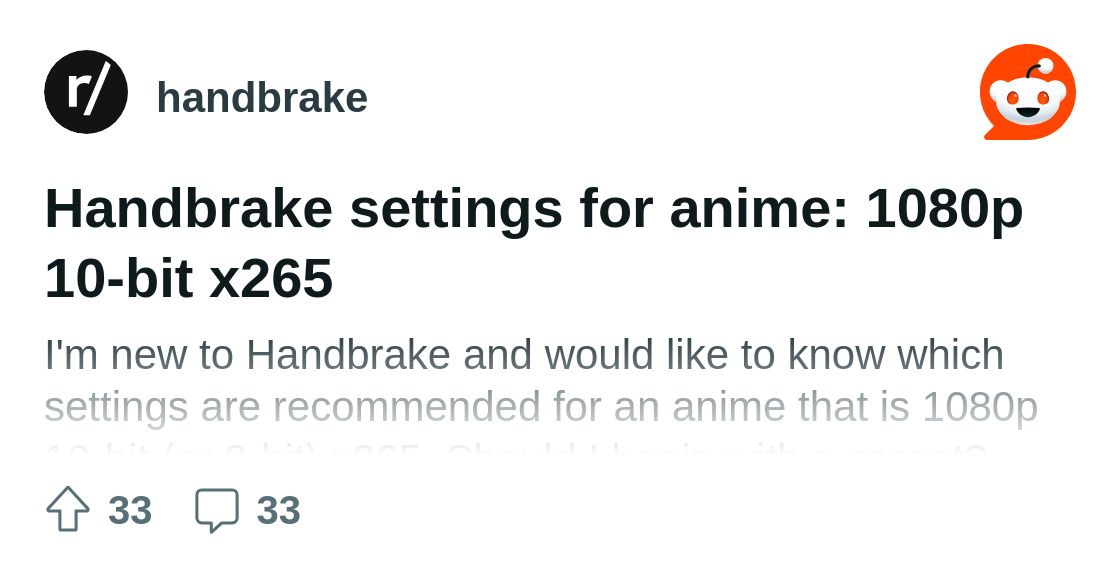Were Magix/VEGAS staff able to help with troubleshooting? Also 22 is on build 250 now (bug fix patch).
Beiträge von rsmith02
-
-
Is your project progressive or interlaced?
How are you doing the de-interlacing exactly? -
Can the Vegas Pro 21 connector be installed into the Vegas Pro 22 folder? Will this work? Thanks...
No, it does not work. A developer stated the SDK changed with VP 22.
-
I'd also appreciate a new connector for 22 now that it is out.
-
MediaInfo doesn't give any clues as to what the Adobe file is? How to use it: https://www.vegascreativesoftware.info/us/forum/faq-h…erties--104561/
-
Adobe Media Encoder with h264 looks better than ShutterEncoder through x264 (same as what Voukoder uses?) What settings are you using with x264?
-
Donated twice to date, will do again.
-
I agree, I'd like Voukoder to be sustainable for you.
-
Maybe try MPC Black and look up a guide for setting it up well? I stopped using VLC years ago (gamma issues).
If your PC CPU isn't old ProRes really should play back, it works fine on my laptop CPU from 2017. Now if it's on a slow disk you could hit bottlenecks there.
-
Some discussion of x264 for animation here if there are settings you'd like to test and compare:
 Aus der Community handbrake auf RedditEntdecke diesen Beitrag und mehr aus der Community handbrakewww.reddit.com
Aus der Community handbrake auf RedditEntdecke diesen Beitrag und mehr aus der Community handbrakewww.reddit.comIf you don't care about file size Apple ProRes422 out of VEGAS will work on YouTube (no need to go through Voukoder).
-
Vouk, if you want to test 12 I can give you my key- I have no plans to install it again.
-
Did you install the original Voukoder (13.4) and not pro? It should work with 12 and you'll see it under the render template "Voukoder."
-
Thank you, happy new year to you as well!
-
Mystery solved, mostly likely- unsupported values chosen for the render format.
Not sure if users can be warned when such settings are chosen?
-
48000KHZ sample rate is standard for video editing.
So Voukoder is attempting to render at 192000? What audio format are you rendering to? AAC? Not sure what the allowable maximum is.
-
Glad you figured it out!
Personally I gave up on VLC for gamma issues like that and switched to MPC Black Edition with LAV filters and it works predictably. It also has MediaInfo integrated into it (file/properties).
-
I don't understand AMF- what does that mean?
Do you get the same result using the Magix presets (MagixHEVC or MagixAVC) as their Voukoder counterparts?
Does MagixAVC with VCE match Voukoder h264 with VCE?
Does MagixHEVC with VCE match Voukoder h265 with VCE?Do the Voukoder renders match each other?
-
How are you judging the rendered footage (what player?)
Which project settings are you using? 8-bit full, 8-bit video or a 32-bit mode? Try 8-bit full if you want to judge your footage by eye or if you have a mix of video and full range footage.
Can you do a h264 render in Voukoder and also with MagixAVC through VEGAS. Do the levels match?
-
I helped troubleshoot a NVIDIA mobile preview bug that affected VEGAS Pro (all versions) post 522.30. It's fixed now.
I haven't seen any reports of driver problems with VEGAS, though there may be with other programs as I don't use them. If you learn about a specific issue to watch out for from a specific driver version that would be more helpful.
AMD has a flipped channel bug affecting renders from a few programs and the latest driver that avoids that issue is 23.7.2.
-
Hi Vouk, can you not ask users to use the newer Nvdia driver? Because the newer driver has some bugs for editing software.
Which driver and what are the bugs?
